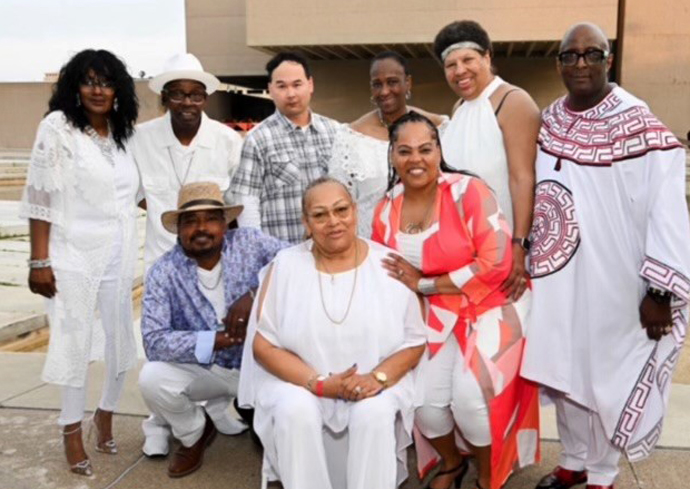Syracuse’s Juneteenth Celebrations Honor the Past, Envision a Brighter Future
While Juneteenth—a day to commemorate the emancipation of enslaved African Americans across the United States—became a New York State holiday in 2020 and a federal holiday in 2021, the Central New York community has proudly recognized and honored this anniversary since 1988.

Cora Thomas is the office manager at WAER—which is part of the Newhouse School of Public Communications—and serves on the Syracuse Juneteenth board of directors as chair of the ancestral celebration. Thomas was an organizer of the festival earlier this month.
She recently spoke with SU News about the meaning and importance of the Juneteenth holiday.
What is the true meaning of Juneteenth, and why is this an important day to celebrate in Syracuse and across the country?
Juneteenth commemorates the anniversary of the day, June 19, 1865, when Union soldiers brought news of freedom to enslaved people in Galveston, Texas, two and a half years after the Emancipation Proclamation. Celebrating Juneteenth is crucial because it acknowledges a very important moment in our history, where it honors and recognizes the struggles and achievements of Black Americans, while serving as a reminder of the ongoing fight for equality and justice.

How have you seen the Juneteenth celebrations grow and expand over the years?
Our Juneteenth celebrations have grown significantly in terms of participation and scope. Once it became a nationally recognized holiday in 2021, there’s been an increase in community involvement, with more volunteers, sponsors and attendees each year. The range of activities has also expanded, incorporating more educational and cultural elements that highlight the rich history and contributions of Black Americans. It’s heartening to see the event become more inclusive and widely recognized. We’re beginning to right the wrongs of the past to ensure equal justice in the future. I embrace the change.
How can you describe the emotions you experience during the victory parade?
The victory parade is always an incredibly moving experience. Watching people of all ages and backgrounds come together to march down the main streets of our city to celebrate our shared history and culture fills me with joy, pride and hope. It’s also a powerful reminder of the strength and power of our community. The fellowship that takes place once everyone get to Clinton Square is like a BIG family reunion. Everyone is rejoicing!